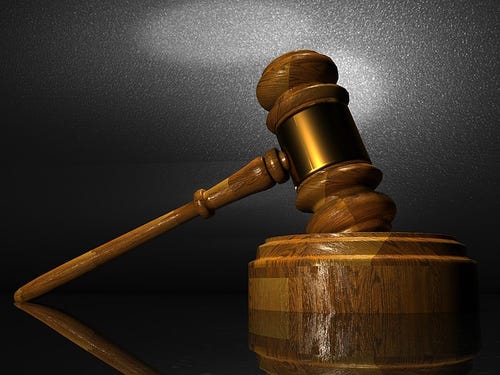February 6, 2017
The complaint may signal a new wave of lawsuits similar to those that overwhelmed implant-makers in the 1990s.
Nancy Crotti

A California woman has sued Johnson & Johnson and two of its subsidiaries, claiming that leaking silicone breast implants caused muscle pain and nausea.
Filed in Superior Court in Los Angeles against J&J, implant maker Mentor Worldwide LLC, Ethicon Inc., and unnamed individuals, the lawsuit alleges defective manufacturing of Mentor's MemoryGel silicone implants, failure to conduct postmarket studies, and failure to alert consumers to "known dangers."
The MemoryGel PMA, granted in 2006, requires Mentor to conduct six postmarket studies on the implants. A 10-year, large postmarket study of 41900 MemoryGel patients yielded a 20.1% follow-up rate, according to the FDA website. FDA said the "very low" response rate made the results difficult to interpret. As of October 2014, the agency had approved Mentor's agreement to conduct a new study "with a new study design to fulfill the condition of approval."
A core prospective study of 1000 patients yielded a 62% follow-up rate but used no control group and lacked "statistical power to detect rare events due to the small sample size," according to FDA. The company has completed or made adequate progress on all but one of its remaining postmarket studies involving MemoryGel implant patients. One European study was terminated.
J&J intends to defend itself vigorously against the lawsuit, according to an email from spokeswoman Emma Reynolds.
"Patient safety has and always will be our top priority," Reynolds said. "Mentor's FDA approved silicone gel-filled and saline implant products are supported by several 10-year clinical studies. The safety and clinical performance of scientific studies do not support the plaintiff's claims."
Women filed thousands of personal-injury lawsuits against silicone breast implant manufacturers in the 1990s, claiming that leaky silicone implants could put them at risk of breast cancer, autoimmune diseases, rheumatoid arthritis, and various neurological problems. Awards in the cases brought some manufacturers to the brink of bankruptcy and led Dow Corning to default in 1995.
FDA announced a virtual ban on the implants that lasted from 1992 to 2006. FDA now says that there is no apparent association between silicone gel-filled breast implants and connective tissue disease, breast cancer, or reproductive problems, though the agency acknowledges that longer and larger studies are needed for a definitive answer. According to the American Association of Plastic Surgeons, 80% of breast implants were silicone-based in 2015. J&J acquired Santa Barbara, CA--based Mentor in 2009 for $1 billion and made it part of Ethicon.
The latest lawsuit could be among the first in a new wave of such complaints, according to Los Angeles attorney Jamie Moss, who represents plaintiff Rexina Mize. A Seattle woman filed suit against Mentor and J&J in San Francisco in September, claiming that her MemoryGel implants caused skin rashes and fatigue, and left heavy metals used to manufacture the devices in her bloodstream, according to a Bloomberg report.
"We believe the problems with Mentor's silicone implant are pervasive and may have harmed thousands of women," Moss told Bloomberg. "This suit may be just the tip of the iceberg."
Nancy Crotti is a freelance contributor to Qmed.
[image courtesy of ACTIVEDIA/PIXABAY.COM]
About the Author(s)
You May Also Like


